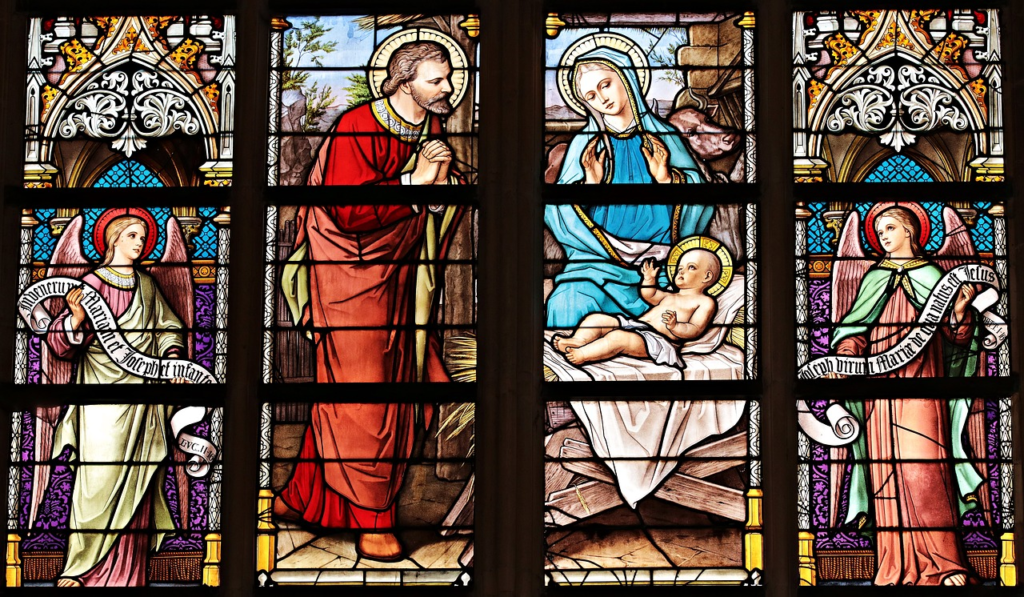
Self-acceptance and acceptance of others have been an intrinsic part of who we are since the day we were born. Similarly, it’s a source of power and inspiration in your life. This is is a complex learning process of the fact that there are people who differ from us and how this can be overcomed.
The Bible where you’ll get many reasons about acceptance and the expressions it uses may help us to forgive, understand, and get confident for our journey of life. As for now when 60 passages of the Bible speak of the notion we are to brainstorm into the key principle. They tell us the life which does not exist in the loud world of whirlwinds and all we may and have to do is to share our love with others while we grow. Tacitly, tolerance forms the base of joy. This is not all you may not have known about, but it will help bring about peacefulness as well.
Some Important Verses about Acceptance to know
| We are commanded to treat others with the same grace that Christ showed us, bringing glory to God through unity and love. | Romans 15:7 |
| Acknowledging that we are wonderfully made by God, appreciating His unique creation in each of us. | Psalm 139:14 |
| Our bodies are temples of the Holy Spirit, and we should honor God with how we treat and care for ourselves, recognizing our worth as His creations. | 1 Corinthians 6:19-20 |
| We are God’s masterpieces, created with specific purposes and good works to fulfill His plan for us. | Ephesians 2:10 |
60+ Bible Verses about Acceptance
Romans 15:7 breaks down to the very core “As such then, extend one another the same grace as Christ did in us to the glory of God.”
Explanation: We are commanded to seize and interact as a nameless accepted Jesus, returning the praise to God through our oneness and love.
Psalm 139:Versed 14 has the same message: “I thank you too, for I am made wonderfully and fearfully. I know very well that your artworks are marvelous.”
Explanation: This flight reminds us of the fact that God has originality and detail in each individual which makes us admire him and appreciate his magnificent creation.
1 Corinthians 6:It is important for me to ponder the question of whether or not I truly listen to these verses, which read 19-20 – ” Or do you not realize that your body is a temple of the Holy Spirit, whom you received from God, and that you are not your own? For you were bought at a price, therefore, honour God with your body.”
Explanation: Our bodies are the latest waste basket that shelves the Holy Spirit’s abodes, and thus we are discerning its behaviour through the way we portray ourselves and deal with our being.

In the words of Ephesians 2:10, “Through him, we are God’s masterpieces, who are created in Jesus Christ for good works that God ordained long ago for us to do.”
Explanation: Every individual of us has been built up separately with some specific mission and commissions according to God’s intended plan. Therefore, each person has been set to fulfill the task right on his or her way.
1 Peter 2:9 says that we are the chosen people, the royal priesthood, a holy nation, a people called by God, to testify “the virtues (or the excellencies), of the one who called you out from darkness into the excelling light.
Explanation: God likens Christians to rare jewels crafted to exude the radiance of his splendor after calling them to come from darkness to a life of dignity, shallowed with purpose, and wear the brightness of light.
In the words of Colossians 2:” 10, (and in him you have been perfected who is the head of all rule and authority).”
Explanation: Through Christ, we explore authority and strength, because Christ is Lord over every part of our lives and the universe.
Psalm 27:10 where the narrator says “Father and mother took me by stealth and left me in the wilderness, but the Lord will bring me back.”
Explanation: Even when God seems far away, his love and care are always there sustaining our life and empowering us to overcome our sorrows.
Also Read: 50+ inspiring Bible verses about the Sunset and Sunrise

1 John 3:1 – “Note the magnitude of the Father’s love towards us to such extent that we are called as the sons of God and therefore, we are sons.” And the world has never known who we are; it has never known who he is.
Explanation: The LORD’s outstanding love begins the biography of born-again as we are adopted into his family, endowed with a unique identity and relationship with him that makes us different from the world.
Proverbs 3:5-5 – “Let the Lord be your guide in all things and do not rely on yourself. Trust His and He shall guide your path.”
Explanation: This discourse pushes us to fully depend on God, recognizing that his wisdom is above all others forming the basis for sure path guidance and comfort as long as we acknowledge him in the course of our lives.
Jesus said in Matthew 11:28, “As for those who are over-burdened and exhausted, Come to me, and I will give you tranquillity and relaxation”.
Explanation: When absorbed in the pressures and misfortunes of life, Jesus encourages individuals to find refuge and comfort in him, to rejuvenate the weary spirit.
Isaiah 41:10 – “Don’t be panic, it’s you I am with you, don’t worry about you, it’s you, God. I will place you firmly on your feet, strengthen you, and support you by my right hand of justice.”
Explanation: God reinforces to us that he is faithful with his nearness, influence, and in turn, as we depend on him and have courage.
Romans 8:The content covered in verses 37-39 is put forth in The Message Translation (kindly note that my own words have been used here): “But, thanks be to God, who in Christ always leads us in triumph! Always! We are more than conquerors through him who loved us.
Explanation: Through Christ’s love we encompass all difficulties and are not jurisdiction of anything hence we gradually dive into God’s eternal love.
Psalm 62:1-2 states, “My spirituality is confined to loneliness savoring just God himself; from him is the potential answer of my agony”. He is my ballast and last hope, my enormous rock; I shall not be shifted nor moved.
Explanation: The Psalm gives a sense of fulfillment in its creator because he has put his trust and hope in God, he is the guarantor of everything one needs, from stability to support in times of trouble.
In Ephesians 1:He is the exalted One; He is the Son of His love and in whom His grace is revealed. Thus, He has made this unmerited favor happen in us through His Son, whom we love.
Explanation: The giving and the love of God that are in Christ are what impel us to praise his wonderful meta characteristics.
Romans 12:2 concurs, “And do not be transformed into this world but renew your thoughts, so that you may prove what is the Father’s good and acceptable and perfect will.”
Explanation: This phrase calls for spiritual metamorphosis, which is attained when we learn to conform our thoughts to the divine will and act in such a manner as to reveal the harmony and perfection in us that is God’s image and likeness.
2 Corinthians 5:According to 17 it is said, “So if you belong to Christ you are a brand new being — look, the past things are gone! See, all things are new.”
Explanation: The trust in Christ goes hand in hand with transformation. We undergo a radical change when we leave the old behind and embrace him in our way of life.
Philippians 4:13 states mentioned in chapter seven in which it is written: I can do all things through him who strengthens me.
Explanation: Christ teaches his followers, vitally, the ability to overcome problems and accomplish his plans for this generation.
Also Read: 70 Most popular Spanish Bible Verses

In the words of Galatians 2:1 Corinthians 12:20, ” I am husked with Christ: and no longer myself that am living, but Christ that liveth in me: and the living which I now live in the body am by the faith of the Son of God, who did love me and gave himself for me.”
Explanation: Christianity manifests itself outwardly through the identification of the followers of Christ with His sacrifice. People of faith experience his presence within them, for he is the one who guides their lives by the aspects of his love and sacrifice.
The Psalm 139:The psalmist in his verses expresses: “You that fashioned my inner parts, my being, you weaved me in my mother’s womb.”
Explanation: This text acknowledges God’s very hands-on contribution in the act of making us, whereby the emphasis is more on his intended purpose than the process of care right from the start of our existence.
Romans 5:Generally, the Scripture pronounces that God is very kind towards us especially when we are still sinners. He demonstrated his love when Christ died for us because we were not even able to do good things thereby proving ourselves to be sinners.
Explanation: Through the doings of God, shown of his love for us and the sending of Christ, and his death to us as the sinners. Who did all these when we were still sinners?
Psalm 103:13-14 verses 13-14 states, that “just as a father has compassion on his children so does the Lord take compassion on those who fear Him”, and further in the next verse (13-14) it implies, that “he knows the state of our lives, being human he understands our nature and which is dust again the same as the common people are.”
Explanation: God’s compassion for us is comparable to a father’s love for his children since he admits our shortcomings and restrains.
1 Peter 5:7 encourages you to pour out your entire worry and trouble on Him because He cares for you.
Explanation: It is stated that we should unburden ourselves from the entirety of our worries which God would be extremely interested in.
Philippians 1:The verse16 of the Epistle to the Philippians goes like this, “I am convinced of this very thing that the one who started a good work in you will carry it to an ultimate achievement until the revelation of our Lord Jesus Christ.”
Explanation: The good work our God starts in us will triumphantly be complete when Christ comes back.
Psalm 23:1-3 phrases, ” The Lord is my shepherd; the lack will never be mine.” He will enable me to lie in blossoming meadows and will plunge me into the soundless rivers. Save me, guide me, as that is the reason why Your name shines among all.
Explanation: God just holds our hands and provides us with what we need, it is only he who leads us towards righteousness.
Also Read: 50+ Bible Verses for New Believers
Psalm 37:5 Corderingly as it is written in Psalm 37: 5 states, “Commit your to the Lord, Trust also in Him And you will be blessed.”
Explanation: On the other hand, when we shade our lives to God and pave the path to him, he acts in our life’s presence the way he is faithful.
Matthew 10:29-31- In nature, the life of a sparrow sold for a penny does matter. Irrespective of this, no demon shall attack you but your Father (in law). Yet the hairs on your head are numbered one by one. So, don’t you fear; you are more valuable than the many birds the Heavenly Father sees.”
Explanation: God holds us in the closest relationship to think even the smallest details about us, so there is nothing to be afraid of.
In the words of Psalm 34:17. “The righteous are those who cry and God listens from his side and sets them free from every trouble.”
Explanation: Yahweh eavesdrops on the prayers of the righteous and delivers them from their troubles.
1 John 1:It is 19 that refers to, ” If we confess our sins, He is faithful and just to forgive us our sins and to cleanse us from all unrighteousness”.
Explanation: While we confess our sins, we have absolute trust in God that God is true to our sins forgives them, and purifies us of all wrongdoing.
Isaiah 30:15 states, “Before God-given Holy One of Israel this was said, “We rest into the Lord and we shall be saved, for peace gives power.” But you still refused.
Explanation: God is the repentance, rest, peace, and trust that provide healing. But, we must decide for ourselves to receive these gifts.
Romans 8:St. Paul states in verse 31 in this way, “So, what shall we say now?” and he comes up with the conclusion that, “God is for us, isn’t He? And who could be against us?”
Explanation: Let’s get one thing straight: when you are with us, no enemies can overcome you!
Galatians 3:1O: 26 states, “But you are all children of God, through faith in Christ Jesus.” This can be reverse-translated into, “
Explanation: In the verses after that one, we see how Christ redeems us to partake in his nature. He is God’s offspring, and thus, we are.
According to Proverbs 14: “Da Pimima dema… again per, but passion (kandakelezzah) is funya to the bones…”
Explanation: Inner calm brings plenty of good and healthy reasons to live, while turmoil inside leads us to sickness.
Philippians 4:6-7 – “Have faith in the Lord and keep seeking his provision. Put all your worries and cares in God. Seek all your needs from Him by prayer and supplications with gratitude. And the peace of God – which exceeds all comprehension – will guard your thoughts and your mind in Christ Jesus.”
Explanation: When facing trials and challenges, do not be overwhelmed by them. Pray to God sincerely and inwards to him, who is the source of all peace. That will prevent your hearts and minds from being disturbed.
2 1 Timothy 1:17-18 God did not give you a spirit of fearfulness, but rather one that is full of power, love, and discipline.
Explanation: God gives us the three qualities that love requires namely bravery, love, and self-mastery, not fear.

Psalm 42:11: “All right my soul, what volition is upsetting you despondent?” But who will keep the portals open for me in misery? Not recognizing the omission of ‘Thou’ from this line feels almost like the sun not coming up in the morning and, therefore, I will still praise God, acknowledging the role of his blessing and my strength together.
Explanation: It is essential to stay hopeful even if it is the hardest time. Furthermore, we should praise God no matter what.
1 John 4:1 John 4:18, reads, “For there is no fear in love, but perfect love drives out fear because the fear brings punishment with it and the one who fears is not yet perfected in love.”
Explanation: Fear is correlated with admonitions instead of love leading God to eliminate it.
2 Corinthians 1:3-4 texts: “May the God of our Lord Jesus Christ, the father of mercies and God of all comfort, console us in our affliction so that through the comfort that we receive, we become comforters of others who are also afflicted.”
Explanation: God doesn’t leave us alone in pain but helps to comfort us so that we will also be able to go out and comfort others as well.
1 Corinthians 12:In verse 12 the sacred text says as it is: “Indeed, the body has many members, but all are one body; and although all of the members of the body are indeed multiple, they are one body, so also is Christ.”
Explanation: Just as our bodies are composed of multiple parts, in a similar way the Christian faith consists of a single body.
Psalm 103:17, who saith: “And the lovingkindness of the Lord is with thee from the beginning to the end, and His faithfulness is unto thy children’s children”.
Explanation: God’s love and righteousness will continue to survive for those who fear him and pass this faith on to the coming generations.
Romans 8:29 He discerns saying that “all things work together for the good of those who love him and are called according to his plan”.
Explanation: This allegory demonstrates to us how God can take any circumstances, good, or bad, and transform them into something valuable to anyone who adores him.
Isaiah 41:13, 952: “For I, the LORD your God, will hold your right hand and tell you: Fear not, I will be your help.’”
Explanation: God’s will is there to serve and lead us through hard times, do not be afraid.
1 Corinthians 10:For instance, 13 states, “No human being has any other temptations than the usual one because all are familiar in the experience of people.” And “The Lord is faithful, he will not permit you to be tempted beyond your capacities.”
Explanation: God not only provides a way to escape from the temptations but also invests new vigor to resist them.
In James 1:17, “Every gift and fruit that is perfect is from above, Father of all lights, from whom the lights of heaven have come down.”
Explanation: We are but creatures and God is the source of all good things whichever prevails and continues.
Proverbs 3:The Scripture says, “At the end of the day you will not fear, your sleep in peace.
Explanation: Trusting in God gives peace, and this calms you, thus no fear is evident while sleeping.
In the words of Ephesians 4:33, “Therefore, be gentle and kind to one another, forgiving each other as Christ forgave you in God.”
Explanation: Jesus has pardoned us, and in return, we have to be humble, forgive, and have compassion.
Psalm 37:When 7 says this next thing, they speak, “Be still and wait for the LORD to come to you.”
Explanation: Believe in God’s plan and the moment of perfect timing, knowing that his actions will take place at the right fulness of time.
Philippians 2:3-4 states: “Do not let any of your actions be driven by selfish ambition or vain conceit. Instead, in humility, take account of others and their interests more than your own.”
Explanation: Demands an attitude of selflessness and putting the needs of others above our own. Listen to the given audio and repeat the given sentence.
Proverbs 16:3 can be written: “Devote all your plans to the LORD and he will grant a stable life.”
Explanation: About your hopes and labors, trust God who will provide everything needed.
Jesus said in Matthew 6:26, “The sparrows you see don’t plant crops nor do they work in fields, and yet, even your heavenly Father feeds them.”
Explanation: This confirms the fact that we trust God to the fullest who cares about us as much as he cares for all the animals in His world.
1 Corinthians 3:Likewise, 16:17 “Do you not, know that you are God’s temple and therefore it is in Hhis spirit that you live.”
Explanation: Stresses out that the proper approach to the body is the attitude of respect and care for which it is intended for.
John 14:And it was with the 27 states he said, “Peace I give you; I have given you my peace.”
Explanation: Jesus does not give us the peace that we know, but the kind of peace that exceeds all comprehension, and fills our hearts with great contentment.
Isaiah 26:3. “In perfect peace you will keep your hearts, and when you trust in me, your minds will stand firm.” (Isaiah 26:3 NIV).
Explanation: A strong faith in God that cannot be rocked when calmness and stability spring up.
In Galatians 6:2ndly, they add that “each one should carry his neighbor’s burden” This way he fulfills the commandment of Christ.
Explanation: It motivates us to support and help each other, passionate with the obligation to breathe out the commandment of love.
Hebrews 4:First he says “Let us, therefore, draw near with confidence to the throne of grace, that we may receive mercy and may be fully helped when in temptation”.
Explanation: Enkindles us with bravery and willingness to find the love and mercy of God, mostly when in distress.
Hebrews 13:5-6 states, “I will never leave you; I will never forsake you.” In this context, we lay claim that the Lord is my helper, and without fear, we declare this.
Explanation: The comfort from God being present without end and the help, which takes away the worry and fear.
Psalm 25:Through 9, the author states that “Heкого the mild disowned the proud and taught them his way.”
Explanation: God leads those who approach him in a spirit of humility, and are willing to be open to his instructions.
Romans 14:1 in which it was stated, “We have the liberty to receive anyone weak in the faith, yet without judging over doubts that have no end”.
Explanation: Aiding the acceptance and consolidation of individuals through the prioritization of fundamentals instead of minor differences.

2 Timothy 2:13 and 2: “If we are faithless, he remains faithful, given he is unchangeable”, and this one believes, “he cannot disown himself.”
Explanation: As a matter of fact, our imperfections or changes may seem to be an obstacle on the way, but God’s loyalty remains unswerving.
Psalm 46:1, a: “God is our mighty fortress and strength, an everlasting peace which will be with us in times of trouble”
Explanation: God is an ever-constant reminder of my strength and support throughout the tough times in life.
What is serenity prayer in Bible?
Lots of people consider the Serenity prayer as quiet and rational thing. The Disney production traces the experiences of Simba, a young lion who learns about these central values from his requirements, including the bravery and the understanding of what can be changed.
The prayer starts with a demand for “the serenity to accept the unchangeable things, the courage to change the things I could, the wisdom to know the different amongst these two.” These words are all about understanding the highest happiness and lowest misfortunes in life.
In this meditation agreement plays the key role. It’s about how to adapt living by the odd changes is powerless. The phrase ultimately does not represent that we should stop fighting, but the notion that we are not capable of adjusting everything and bring complete justice.
The prayer talks about the courage issues such as climbing up Mount Zion body: Thus, it teaches us that we actually have power even just a small chance to help others. This means us not remain as an unattentive spectator when we can offer a hand in help.
Another notable implication is the role of wisdom, too. It’s all about the instruction when to act and when to stay unenthusiastic. We acquire this knowledge through schooling, and failure acts like dye and paints our brain.
Even an AA member who is unfamiliar with this prayer will understand the message based on the powerful wording. It intends that be can be used by everyone who is in need of some relaxation or is suffering through a hard time.
Reading throughout the Bible and finding similar messages about having faith in something more and finding the courage to trust the Lord, as well as answers through reflecting upon, reading and relying heavily on God’s guidance, prove to be useful.
The Serenity Prayer isn’t some words that been thrown at the praying; it’s more to a way that can guide you through life’s problems and keep you calm. The meaning of its message has been felt by millions of people, across the globe, regardless of their faith or convictions, proving this is a bigger truth that stands the test of time and goes beyond the borders of the three religions.
Bible Verses about forgiveness?

Almost in many religions including the Christianity forgiveness is a very important part. It is not an easy job to give up anything that is negative or anyone who has shown you in an unreasonable way. The Bible encompasses also some best portions related to forgiveness and why it is so important.
One well-known verse is from Matthew 6:9-11. At the opening, Jesus states that if you forgive others, God will also forgive you. Nevertheless, if you cannot forgive others, God will not forgive that sin from you. This turmoil brings to light the plight of asking forgiveness from others and thus receiving absolution for ourselves.
Another line in Colossians 3:Through verse 13, we are addressed to see forgiveness as equal to the way God forgave us. It involves not only patience and tolerance, but also to at least give others the benefit of the doubt when they wrong us. With this model, we imitate Jesus.
Ephesians 4:Another intriguing Scripture verse is 32. It tells us to do to others what we would like them to do for us. Similarly, God forgives us through Jesus just as we should forgive others. This is the golden rule. The poem illustrates that forgiving is more than just by saying sorry, it is also through acting sweet and tender.
In Matthew 18:21-22, He tells a parable on God’s forgiveness. It is figured out by a servant who owed large debt but abstained to forgive his debtor the minor amount. It becomes the basis of our understanding that since God forgives us a lot, we need to forgive our brothers too.
These verses emphasize forgiveness as central to all of our lives because it helps us maintain our own peace and also be at with others. When we forgive, we can eradicate negative thoughts and build a place between us for love and comprehension.
It is hard work to forgive but the passages highlight the importance of these qualities of taking forgiveness for life. Forgiving others, we can experience inner harmony and grow stronger relationships with those on our close.
What does the Bible say about being accepting of others?

It is also highly significant and crucial today. It is about extending everyone the courtesy of human kindness, no matter how different they may look to us. The Bible says many things about this, and thus it gives us crucial elements about love and acceptance for everyone.
Another major value Bible proclaims is to love others with the same love we give to ourselves. Galatians 3:28 States of God’s kind of Equality. It does not matter whether someone belongs to a different background, social order or gender. we are all alike in Christ Jesus.
Jesus himself provided the model for the way to accept everyone without negative prejudice. He approached people from all the strata, dedicating his life especially to those who were neglected in the society. His tale of the Good Samaritan in Luke 10:Prov 25-37 acknowledges that we must be merciful and tolerant to individuals who are subjected to injustice as well.
It is the humility that is also good to learn. Philippians 2:3-4 commands us to put others first and treat everyone cordially and kindly. This constitutes the recognition that we should give equal importance to the emotions and desires of others as we do to ours.
The Bible unambiguously denounces discrimination and prejudice. Romans 15:By referring to 7, he reminds us to be tolerant like Christ was with us. It is about appreciating the fact that we are all different and also loving the individual traits of each one of us.
Basically, the Bible says that we should be kind, caring and everyone should be accepted. Through using these principles, we will create a world where everyone will feel valued and appreciated. It’s about teaching unconditional love and tolerance for all, just like Jesus did during his time on earth.
To wrap up, acceptance is the main idea that the Bible teaches us and that we can apply in our lives daily. Let us help each other to become more open-minded and tolerant, and we will be able to improve the whole world.
Examples of acceptance in the Bible
The Bible is a book full of examples which helps us acknowledge and be kind regardless of our differences. These stories are good illustrations on why good understanding and consideration of each other like family members is fundamental.

Meanwhile another story is about a ‘good Samaritan’ who offers her help to someone in distress though the person is different from her. Here, Bible teaches us that kindness is a quality that goes beyond distances.
The narrative of Joseph is another one which shows the relationships among the brothers living in the household. Joseph showed his ex-brothers that they were above the betrayal, envy, and misbehaviour they exhibited. In the end, it is all the question of forgiveness and how even hurt can be mended between people when they and a sense of belonging.
The combination of the stories of Ruth who showed the most devoted love and affection for her mother-in-law Naomi is also very special. Natasha Ngiam, 2023 Though she was another one who lived somewhere else, her agape love and care went through any barriers displaying that unity existed no matter the difference.
Saul’s transformation into Paul, related through another gripping story line, is another entertaining event. When Saul was mistreating people, the change was evident when he had a drastic turnaround in his life. The community was kind to him, thus confirming that we can all find it within us to inwardly and outwardly change and be accepted for who we are.
Jesus also taught us about acceptance by spending time with those whom we forgot, rejected, or despised for any reason. He considered everyone such as underdogs and outcasts worthy of attention and kindness. He was charitable to everyone without any prejudice of something like their background or flaws.
Such narrations to us mean abundant with marvellous tips and techniques during difficult periods like this. They prepare us for the world of people who are different from us and who need us to treat them with kindness and understanding. They familiarize us with the instances of forgiveness too. In an arena where remark is sometimes the other persons doesn’t come because of their differences people reading these stories encourages community to be more tolerant and embracing.
Studying these stories make us recognize and develop qualities like empathy, sympathy and tolerance that enables us to accept our fellow humans. We can construct a world where everyone is known as the respected person and not judged just on the basis of where you are born or your opinions.
What does scripture say about acceptance?
The teachings of Scripture specifically address the topic of acceptance, sharing relevant insight and advice for living a life of love, kindness, and understanding.
1. Romans 15:7 (NIV)–“Accept one another, then, just as Christ accepted you, in order to bring praise to God.” This scripture helps to stress the people’s understanding of the fact that everyone must accept others since they have been accepted by Christ. It invites believers to show acceptance to each other, as God has accepted us with no condition.
2. Galatians 3:28 (NIV): “There is neither Jew nor Greek, there is neither bond nor free, there is neither male nor female: for you are all one in Christ Jesus.” This passage clearly highlights the equality and unity during the social integration process as it encourages everyone to accept the others despite their social-cultural differentiation. It explains how unity within the body of Christ should embrace the diversities present among people.
3. Matthew 7:1-2 (NIV): The Master said, “Don’t condemn others, or you will be condemned yourselves. For the judgment you give is the judgment you will receive. “Jesus discourages the biased mind-set and calls for tolerance with other people. This verse, therefore, urges people to avoid being proud while also promoting the virtue of caring for others.
4. 1 Peter 4:8 (NIV): ‘First, clothe yourselves with love, which is the perfect hiding place for all sins. ’ Acceptance is born out of love. This verse simply calls the believers to remember that love is the key to accepting one another and to reconcile in society. It enhances the aspect of tolerating one another and expecting no one to change for the better.
5. Colossians 3:13-14 (NIV): “Therefore, its members must live in peace with each other and forgive one another as God forgives each of them.” And above all, put on love, which binds everything together in unity, for you are called to live as those who are forgiven. Finally, on these virtues, put on love, which makes all of them full and complete in value. It’s something that requires time to be spent, offences to be overlooked, and affection to be expressed. This passage also calls for the need to employ these virtues to ensure the unity of the believers and acceptance of anyone in the society.
What psalm is for acceptance?

Although there is no Psalm with the clear title Accepting Lord or similar having the acceptance as its major theme, there are several Psalms that contain verses that would apply to that theme and could be used as materials for creating an appropriate Psalm. Here are a few Psalms that reflect these themes: Here are a few Psalms that reflect these themes:
1. Psalm 27:10 (NIV): “Though my father and mother abandon me, the Lord will not forsake me.” This verse expresses the comforting solace that one can get in the Word of God when human beings disappoint or even reject one. It gives a lot of comfort for believers of God, as it shows that he loves them and will always accept them.
2. Psalm 23: Psalm 23:1 (NIV): ‘The Lord is my shepherd, I shall not be in want. ’ The Lord is depicted in this Psalm as a caring shepherd who offers guidance and protection, and the believer is simply a sheep in his flock. Like in any relationship, both have a feeling of acceptance and or feeling secure all the time.
3. Psalm 139:14 (NIV) I will praise thee, for I am fearfully and wonderfully made: wonderful are thy works; and that know I. This Psalm extols the value and dignity of the created human self made directly by God. It also endorses the message that self-acceptance stems from a recognition and appreciation of God’s purpose in one’s life.
4. Psalm 34:8 (NIV): “Oh, taste and see that the Lord is good; blessed is the one who takes refuge in Him.” These Scriptures encourage believers to embrace the Word of God and to discover its sweetness for themselves, as well as to rely on Him as a protection from any danger.
5. Psalm 91:1-2 (NIV): “God is my defense and my fortress, the one in whom I find protection.” Psalm 91 shows God’s protection and embracing of the reverent believer and protecting such a believer in this Psalm.
Although none of these Psalms uses the concept of ‘acceptance’ outright, one can find certain verses in the Psalms that helped the believer to have the assurance of his acceptance with God and have full assurances of his protection and safety in God’s arms. To the many who look for acceptance and shelter in Him, the words bring comfort and hope.
What does the Bible say about accepting situations?

The scripture to be specific has encouragement to those going through these moments in life, informing them to embrace life when it seems futile and to trust in God, the provider. Here are some key principles and verses that speak to this theme. Here are some key principles and verses that speak to this theme:
1. Trust in God’s Plan: Proverbs 3:5-6 (NIV) strongly recommends that believers should not rely on their own folly: “Trust in the Lord with all your heart, and do not lean on your own understanding. In all your ways submit to him, and he will make straight your paths.” This verse highlights that acceptance starts by accepting the divine plan regardless of how the plan looks like or the situation one has found themselves in.
2. Contentment in All Circumstances: Philippians 4 11-12 of the New International Version provides a chorus on how to live whether in abundance or in need: “I am content in every circumstance.” I have learned the secret of being content and contentment is not based on having all you desire, but learning to be satisfied with a little. For I have learned not to rely on myself but on God through any state I am exposed to, whether full or fasting; whether in abundance or in lack. With this passage, believers learn that there is true potential for peace and joy in God, no matter the state of outside affairs.
3. Surrender to God’s will: “And we know that in all things God works for the good of those who love him, who have been called according to his purpose” Romans 8:28 (NIV). Acceptance is the acknowledgement of the calling and accepting the fact that even in adversity, there is beauty in surrendering to God’s will and allowing him to work it out.
The Bible, has seen in this paper, therefore provides guidelines on how one is supposed to accept situations: dependence on His providence, learn to be content, submit to God’s plan, and bear fruit in patience while waiting for His intervention. Through the adherence to these principles is easy to achieve comfort and determination when facing the various tests of life.
What does the Bible say about tolerance and acceptance?
The Bible has teachings regarding the objectives of tolerance; love, care and acceptance of individuals and with different people in society, especially the followers of the scripture.
1. Love One Another: Having an ultimate love for God and neighbor is the last command given by Jesus before His crucifixion (John 13:34). This is the Love that is full and whole, unhampered by distinctions and boundaries. Thus, work cultivates permissiveness and acceptance of the other by accepting people, their traits, and opinions.
2. Unity in Diversity: Taken from Ephesians 4:2-3, this biblical passage has very significant messages that link humility and patience with unity; this shows that while working together for the Lord, people must tolerate one another despite their differences.
3. Non-Judgmental Attitude: Matthew 7:1-2: “Judge not, that ye be not judged. For with what judgment ye judge, ye shall be judged: and with what measure ye mete, it shall be measured unto you.” Jesus stresses the fact of a non-judgmental attitude towards other people and refraining from unfair criticism of others.
4. Welcoming the Stranger: The scriptures in evaluating the status of strangers and foreigners encourage hospitality and kindness among the believers. Hebrews 13:2 says, “Be kind to the strangers, for you will host an angel and know it not.” This reminds us to be open-minded to people who differ from us.
5. Golden Rule: Matthew 7:12 contains such a statement by Jesus saying ‘So in everything, do to others what you would have them do to you, for this sums up the Law and the Prophets. ’This upholds the concept of people emulating their fellows using a golden rule of reciprocity without prejudice.
The Bible supports equal treatment and embracing of differences based on the core values of acceptance, harmony, and mutual respect. By doing so, believers can promote tolerance and unity instead of division, seeing as God also has ‘compassion for all people’.
Conclusion
Ultimately, the Bible instructs us to love and forgive others and ourselves. Stories like the Good Samaritan demonstrate charity to everybody, while texts like Romans 15:7 urge us not just to be forgiving but also to be compassionate. According to Psalm 139:No. 14 everyone of us is a perfect piece of art. We reflect God’s love by loving ourselves and others, regarding our bodies as sacred, and appreciating diversity. These lessons assist us building a more loving and accepting world.

